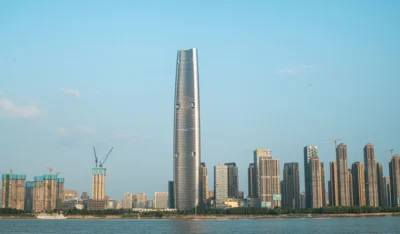News roundup: The evolving roles of Malaysia’s shopping malls, plus other stories

For PropertyGuru’s real estate news roundup, a comprehensive analysis of the quantity, classifications, performances, and evolving roles of shopping malls in Malaysia in the post-pandemic era. In other updates, homeowners in Singapore want to know if mortgage rates will go down in 2024. And we present key trends and developments that will shape Bangkok’s property market this year.
Evaluating the performance, challenges, and role transformations of shopping malls in Malaysia amidst the post-pandemic era
Shopping malls are one of the preferred options for many developers, according to iProperty (Malaysia)’s report. Not only does the mall generate rental rates and capital appreciation that brings new revenue streams, but it is also a commercial component that helps justify the investment return of mixed-use development while mitigating risks from sole reliance on the residential segment in times of uncertainty.
From the developer’s point of view, it is the catalyst effect of the mall that brings substantial capital investment to an area that had previously attracted little.
By capitalizing the property value with the injection of shopping malls, developers can garner more interest from the public, leading to an overall positive market sentiment that will spur growth further.
This is because the proximity of any proposed developments to a shopping mall, especially those large-scale mega malls, tends to be associated with higher rental yield, property “sell-out,” as well as infrastructure connectivity and social amenities development, which then intensifies the transformation of vicinity areas into high opportunity and hot neighbourhoods with higher economic benefit.
More importantly, like Singapore and Hong Kong, developers in Malaysia have started to sell matured malls into real estate investment trusts (REITs) to raise their profile and recycle their capital while continuing to generate rental income and create asset management opportunities. By contributing their assets to a publicly traded REIT, developers can realize marked-to-market growth in the value of the properties on a real-time basis while maintaining the option to exit their investments through the public markets.
Will mortgage rates in Singapore go down in 2024?
When will interest rates go down in Singapore? Will mortgage rates go down in 2024? These are some of the most common questions among homeowners in Singapore who are financing their houses via bank loans. If you’ve been monitoring the market, you would have realised that in 2022, home loan interest rates climbed quickly from their low COVID-19 levels. In Q1 2024, we remain in a high-interest rate environment.
The adage is true: what goes up must come down. “But when?” PropertyGuru (Singapore) shows the 2024 outlook of property prices and mortgage interest rates.
Navigating Bangkok’s property landscape: Key insights for 2024
Bangkok’s property market presents a unique landscape marked by challenges and opportunities. DDproperty’s Thailand Property Market Outlook 2024 report unpacks the key trends and developments that will shape the market this year, empowering homeowners and property investors to make informed decisions.
The Property Report editors wrote this article. For more information, email: [email protected].
Recommended
Malaysia property market rebounds with foreign interest and growth
The nation’s property market is stirring to life, fuelled by foreign buyers and major infrastructure drives
China’s renewable energy surge redefines housing norms and development
From exporting solar panels to building entire green-powered neighbourhoods, China’s renewable surge is redefining housing norms
Philippine real estate stays resilient amid political turmoil
The arrest of former President Rodrigo Duterte is a huge political plot twist. But the real estate sector in the Philippines is not (yet) flinching
Vietnam housing market poised for growth despite tariff challenges
With possible punitive US tariffs looming over the economy, Vietnam’s otherwise buoyant housing market has entered a cautious stage






